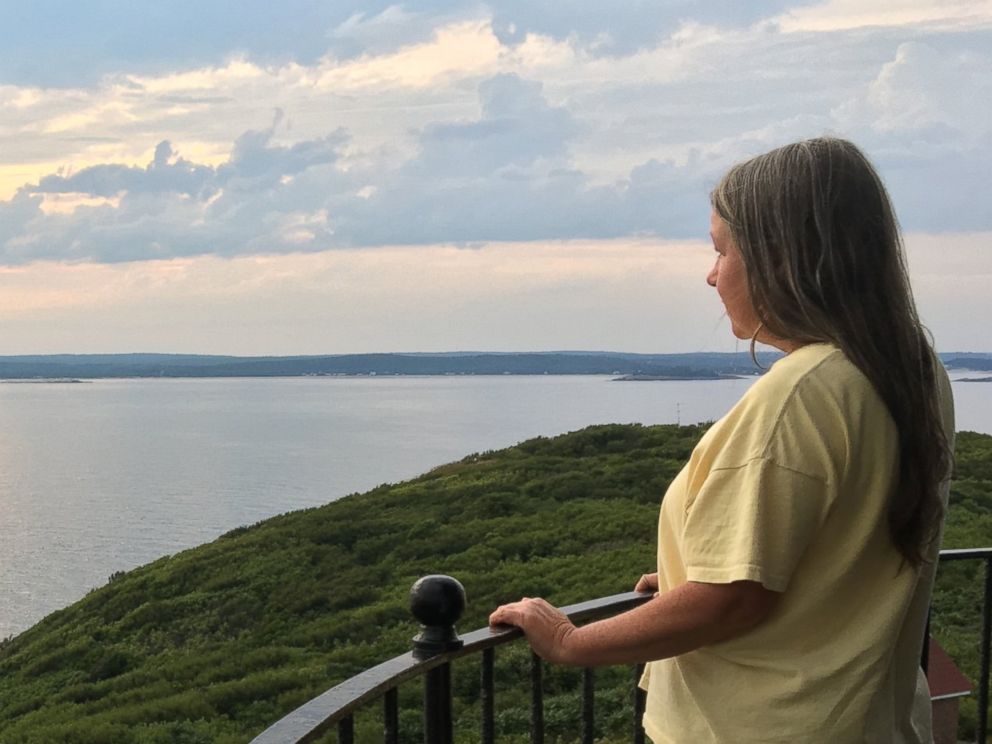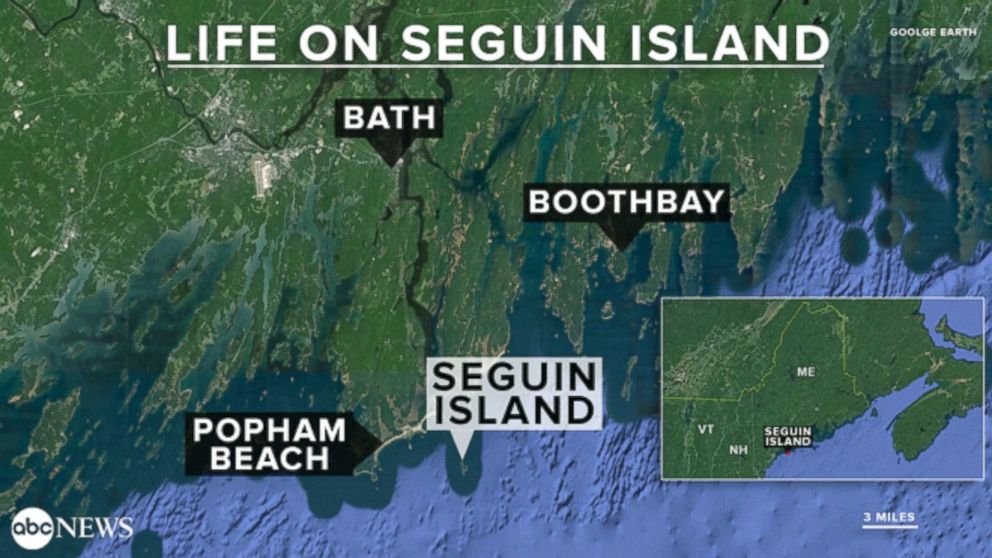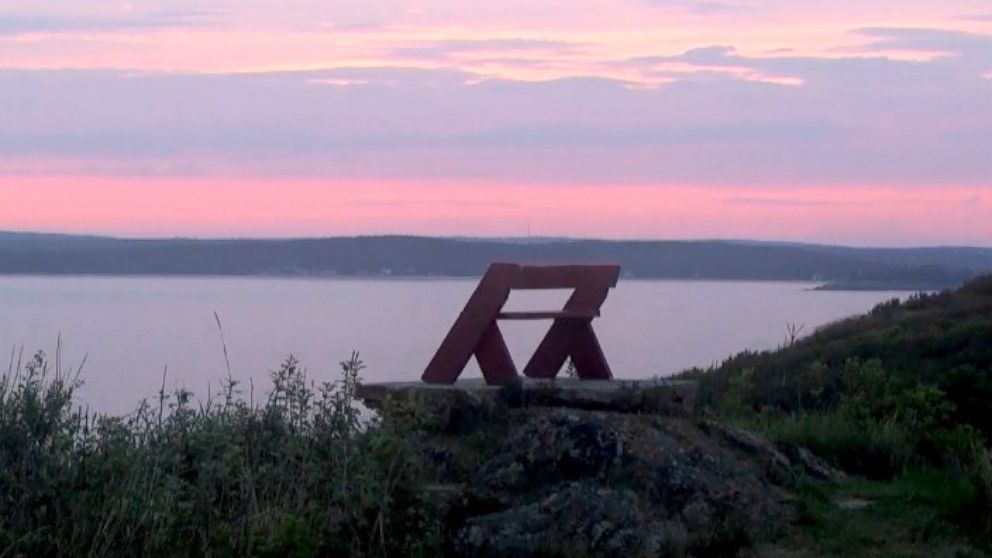Couple Leaves It All Behind for Dream Job at Remote Lighthouse
Off the coast of Maine, this couple found tranquility.
— -- Every morning for the past 15 years, it’s been the same routine for Mitchell Thorp and Patty Sullivan: Wake up at dawn, brew a pot of coffee, eat breakfast, and make a list of things to do for the rest of the day.
Recently, their mornings have been different.
Long gone are the sounds of neighborhood kids squealing as they ride their bikes to school or the ringing of phones in their home office. Now, only the music of chattering seagulls and the soft, pulsing harmony of waves seeps through to their small dining room table.
“We’re not lacking anything here but it’s just a much slower pace,” said Thorp.
“It’s nice to pull back into the cove and …” Sullivan said, exhaling. “Peace.”
Thorp and Sullivan are this summer’s caretakers for Seguin Island: a small, 64-acre dot off the coast of Maine where the state’s tallest and second oldest lighthouse resides.

The massive tower is still operated by the U.S. Coast Guard, but local nonprofit, Friends of Seguin Island Light Station, is in charge of maintaining everything else. For six months, the organization supports volunteers living on the island as they look after the land, give up modern conveniences and learn to embrace seclusion.
Thorp and Sullivan have been together for 15 years and used to own an accounting software consultant business in North Carolina. After selling their company in 2012, they chose to spend their retirement as professional caretakers. “Sitting at a desk looking at a computer all day was not hard to walk away from,” said Thorp with a laugh. “At all.”
They say they jumped at the opportunity to come to Seguin Island when they spotted an ad for the caretaker position in a small-town Maine newspaper. “We’ve been doing some caretaking for private residents, small resorts, guest houses … but we’ve never taken care of a lighthouse before,” said Sullivan.
Seguin Island is a 30-minute boat ride from Popham Beach, Maine, with one local man primarily making the daily journey back and forth for seasonal tourists.

Every Wednesday morning, Thorp and Sullivan make a quick trip back to land to throw away trash, pick up weekly essentials from the grocery store and do laundry at the laundromat. “The first Wednesday we went in, we bought two weeks worth of freezer stuff so that way if we do get stuck here, we have food,” said Sullivan. “One prior caretaker told me about eating peanut butter for four days because the only thing they had was peanut butter left and they had encountered some bad weather.”
Thorp says other than a fully stocked fridge, a healthy relationship with your partner and a strong sense of independence make surviving island life easy.
“You have to know you’re not going to kill each other…. You are alone most of the time and you can’t call somebody to come and help you, or deliver you pizza,” said Thorp. “You have to be self-sufficient and you have to like that.”
The house’s toilets are all composting, so they have to clean it almost daily. There’s no Wi-Fi aside from an unreliable and temperamental hotspot. The water isn’t drinkable, so they have to fill up huge jugs of mainland tap water each week, store it in a shed at the bottom of the island’s hill, and bring it up the hill to the house using smaller gallon jugs every day. “It is something you definitely have to adapt to,” said Thorp.

Then there’s the rumors of a paranormal presence on the island. Legend has it that former caretakers have heard ghostly piano music or the giggling of a little girl running around late at night. Sullivan shakes her head when asked about this and smiles.
“There’s stories that it’s haunted, but we’ve seen no evidence of that,” she said.
“There’s only good vibes here,” added Thorp.
Even with all of these little quirks, Thorp and Sullivan say their experience has been pleasant. Thorp says the daily stream of tourists has kept the loneliness largely at bay, and island mentality has definitely taught him a thing or two about life.
“You have to push the Type-A away because in the business world, you need to be that way, but in the real world, outside of business, it’s not healthy to be that way all the time,” he said.
“But, there’s definitely an element of our friends and family who think we’re crazy,” he added with a smile.




